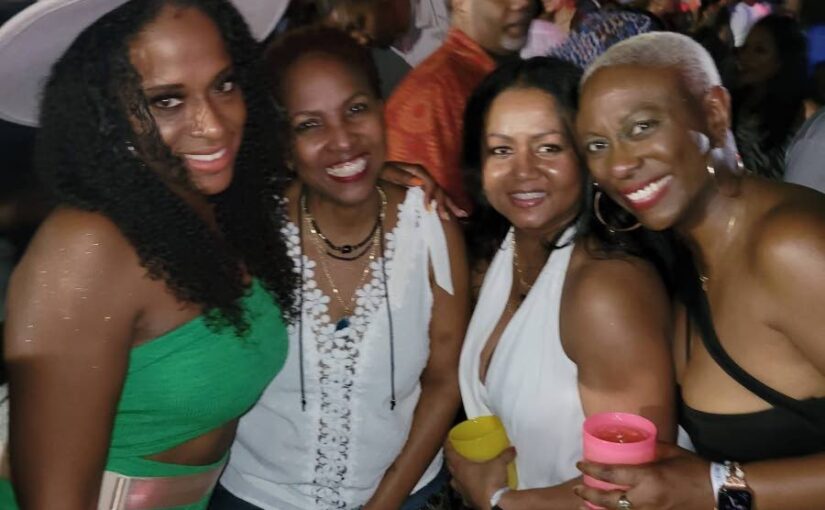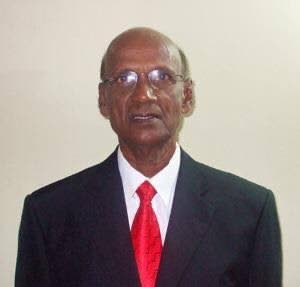While the terms diversity, disability, equity, and inclusion are frequently discussed in isolation, they are deeply interconnected and collectively...
Vous n'êtes pas connecté
- English
- Français
- عربي
- Español
- Deutsch
- Português
- русский язык
- Català
- Italiano
- Nederlands, Vlaams
- Norsk
- فارسی
- বাংলা
- اردو
- Azərbaycan dili
- Bahasa Indonesia
- Հայերեն
- Ελληνικά
- Bosanski jezik
- українська мова
- Íslenska
- Türkmen, Түркмен
- Türkçe
- Shqip
- Eesti keel
- magyar
- Қазақ тілі
- Kalaallisut ; kalaallit oqaasii
- Lietuvių kalba
- Latviešu valoda
- македонски јазик
- Монгол
- Bahasa Melayu ; بهاس ملايو
- ဗမာစာ
- Slovenščina
- тоҷикӣ ; toğikī ; تاجیکی
- ไทย
- O'zbek ; Ўзбек ; أۇزبېك
- Tiếng Việt
- ភាសាខ្មែរ
- རྫོང་ཁ
- Soomaaliga ; af Soomaali
Rubriques :
 Maroc - NEWSDAY.CO.TT - A la Une - 08/Sep 08:32
Maroc - NEWSDAY.CO.TT - A la Une - 08/Sep 08:32
A call for disability inclusion
Stacey Samuel-O'Brien DISABILITY Pride Month is celebrated in some cities in the US during the month of July. July was selected because the Americans with Disabilities Act (ADA) was signed into law on July 26, 1990. While Disability Pride originated in the US, it is also celebrated in many other countries. Celebrations include parades, concerts, live performances and street festivals. Disability Pride Month is touted as a time to honour disabled people, their contributions to society, and their accomplishments. It is a way to give visibility to disabled people and highlight their right to lead fulfilling and independent lives. It also aims to remove the stigma of being disabled and improve the way people with disabilities are perceived. Disability stigma rears its head in various ways. Societal norms seem to suggest that disabled people should “stay in their lane,” hidden and at home. A few years ago, my friend Krista got into a very heated argument with a police officer at the gate of a party here in the US, in defence of me. We had just told him of my mobility challenges and explained my needs, to which he scoffed, “So why is she coming to a party?” It was clear that he believed that, as a disabled person, I should be out of sight instead of trying to party like everybody else. There are many, more subtle yet equally powerful ways that disability stigma is revealed. Examples such as buildings without wheelchair-accessible bathrooms or elevators, menus without braille or audio options, or even websites without accessible options, tell disabled people that they are not considered and not welcome in the public domain. But staring at us when we are out running errands or performing daily activities is easily, I think, one of the most common annoyances that we have to endure. Staring, especially for no reason, makes the disabled person feel uncomfortable and/or self-conscious. According to my disabled friend Fabi, “We’re the biggest fluorescent pink elephants in the room. We get stared at and ignored at exactly the same time." It is not easy coming to terms with and handling being disabled, especially when it’s not expected or major lifestyle adjustments are required. Disabled people have to manage physical, psychological, financial and emotional challenges, and even after we have learned how to cope, living with a disability can be exasperating. The stigma attached to being disabled adds to the anxiety, frustration and/or inadequacy we may feel. Being gawked at or shunned, dealing with people’s pity, or even their false cheer, can severely damage someone’s feeling of self-worth, and does nothing to help them cope. Disabilities manifest in many different ways and disabled people do not expect everyone to understand all the challenges, so I think that it is natural for someone to be curious. As a physically disabled person, I cannot begin to understand what a blind or deaf person deals with and, I imagine, the reverse is the same. But, as a society, we need to develop better ways to acknowledge and accommodate all disabilities. Neither ignoring disabled people completely nor shining a spotlight on their differences is productive. One of the key ways to overcome the disability stigma is by inclusion. Businesses can provide sensitivity training to their employees so they are well-equipped to address disabled patrons’ concerns, or include speakers so that instructions are oral as well as written. People can offer help and be patient when interacting with the disabled (that said, it’s important to always ask if they want help and wait for them to tell you how to help). These are ways to show disabled people that they belong and have a right to be there. Disability Pride Month is a call for everyone to be more aware of, and become active in, disability inclusion because the truth is, a disability can affect any of us, at any given point in time. Disability inclusion will lead to a TT where disabled people function with comfort and dignity, and are regarded as whole, contributing members of the society. Here are some “Dos” and “Don’ts” (I’ve experienced all of these over the years) for interacting with a disabled person: Do: Ask if we need help and listen when we tell you exactly how to help. Speak to us directly. Remember that we ar people and have feelings; be genuine when asking questions and try to focus on the things that we have in common. Don’t Assume you know what help we need and start doing so without asking (this can actually be counterproductive and helps no one). Ignore us completely and speak to the person standing next to us, because you think they know what we need. Look us up and down, or stare, to try and determine what might be “wrong.” Multiple sclerosis (MS) is a debilitating autoimmune disease that affects the central nervous system. In MS, the body's white blood cells attack the protective covering of nerve fibres. When nerve fibres become exposed, electrical messages between different parts of the body and the brain are no longer transmitted effectively. MS can lead to sensory, cognitive, digestive and muscular issues. It is a degenerative disease for which there is no cure. The post A call for disability inclusion appeared first on Trinidad and Tobago Newsday.
Articles similaires
Disabled people earn £4,300 less a year – but Labour STILL want to force us into work
How much will you earn between now and the rest of the year? Well if you’re disabled it’s effectively nothing. Thursday 7 November is Disability...
Americans own guns to protect themselves from psychological as well as physical threats
Kamala Harris, Donald Trump, Tim Walz and JD Vance all have something in common. All four of them, along with an estimated 42% of American adults,...
The Fourth Branch Of US Government Faces A Reckoning – OpEd
By Kimberlee Josephson Jeff Bezos recently released an op-ed on why the Washington Post will be refraining from endorsing political candidates...
European Art and Culture Disability Festival is here
Celebrating diversity, and creativity and promoting the inclusion of people with disabilities is the main mission of a brand-new festival that is...
Readers Write: November 2024
Good people hurt by MCC I am writing this letter in support of the individuals who wrote and signed the open letter to Mennonite Central Committee...
Complex Systems And The US Election – OpEd
With the US presidential election mere days away, American citizens first and foremost – but also people in other countries, given what is at...
Olaf Sholz And His Party “Betrayed Ukraine”. Interview with Serhii Sumlenny
In the interview we ask the German expert Serhii Sumlenny about why and who sabotages the aid to Ukraine, and does not believe in Ukrainian...
Dispelling the darkness
THE EDITOR: I wish I could indulge in the usual platitudes at this time of light overcoming the darkness in this land of ours, but the realist in me...
Unity makes church
Compromise feels like a curse word these days. Opinions are deeply entrenched. Distinctions between “us” and “them” are sharply defined....
Les derniers communiqués
-
Aucun élément





